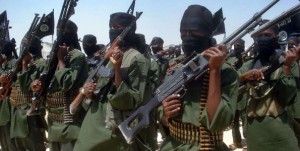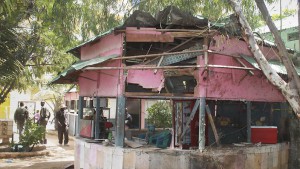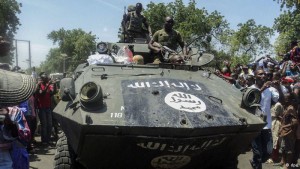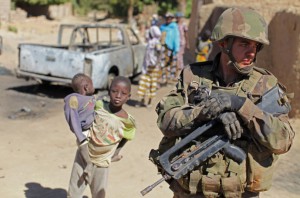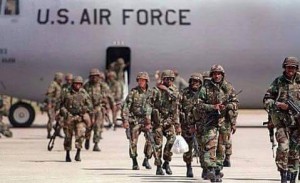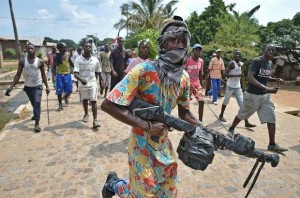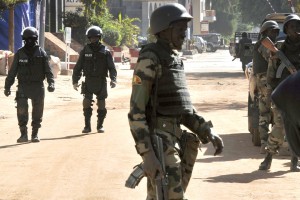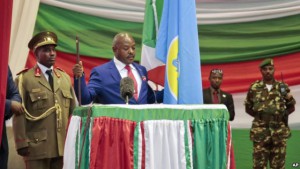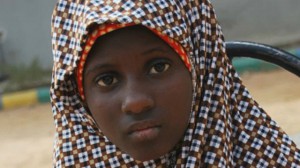One of the most striking features of a recent continent-wide Afrobarometer poll was that while the usual list of problems — unemployment, poverty, health and education — topped the list of concerns for respondents in most countries, in Kenya, Tunisia and Nigeria, insecurity was the number one worry.
The poll of 48,000 citizens across 32 African countries shows how terrorism has become a disruptive influence in key parts of the continent, redrawing local priorities and imposing an unwelcome burden on economies.
In 2015, the minds of policymakers continued to be exercised by emerging security challenges in East Africa, a scenario that is unlikely to change in the coming year.
The attack on the Garissa University College on April 2, 2015 in which a small group of Al Shabaab militants massacred 147 people, mainly young students, attracted attention around the world and highlighted how the dysfunction in Somalia has created a breeding ground for militants capable of and willing to strike far from the battlefield in that country.
The crisis bred by Al Shabaab has pulled in several countries. Kenya has been the primary victim of attacks by the militants since its forces crossed into Somalia in 2011.
African Union Mission in Somalia troop contributing countries Uganda, Ethiopia and Burundi have also been the subject of frequent threats by the Shabaab, but the militants are yet to repeat an atrocity on the scale of the twin World Cup final bombings in Kampala in 2010.
In the past few months, Tanzania, too, appears to have been drawn into the crisis amid reports of heightened recruitment by Al Shabaab and parallel security reports that many radicalised youth have fled crackdowns at the Kenyan Coast and sought refuge in northern Tanzania.
The challenge posed by the Al Qaeda-affiliated group is likely to be one of the key issues security forces across the Horn of Africa will grapple with in 2016 — although analysts say some of the worst affected countries such as Kenya have seen some progress in recent months.
“Since April, Al Shabaab has not been able to mount a ‘spectacular’ assault but it is almost certain it still has the ambition and the skills to carry out mass killings,” said Rashid Abdi of the International Crisis Group.
However, the relative quiet on the anti-terror front could be easily shattered by a major attack by Al Shabaab, whose leadership is being challenged by a still relatively small faction of the group, which is seeking to declare its support for the so-called Islamic State.
That vicious internal battle could spell danger within East Africa because one of the factions may seek to prove its mettle by staging a major attack somewhere in the region in a competition for recruits, prestige and above all money, to determine if the more established Al Qaeda-affiliated group or the new challengers from ISIS gain prominence.
Power struggles
Away from the terror front, more familiar challenges relating to power struggles were witnessed in 2015 and are likely to carry over into 2016.
The crisis in Burundi has raged for months but the row triggered by President Pierre Nkurunziza’s decision to seek a widely disputed third term was predicted by analysts who pointed out that the ruling elite in Bujumbura had never really embraced the Arusha Accord, which ended years of fighting.
The flight of large sections of civil society, including virtually all independent journalists, entrepreneurs and lawyers, has created a worrying vacuum in which mainly armed combatants and trapped civilians remain.
At the same time, the divisions between Dar es Salaam and Kigali on the crisis have been seen as a challenge on the path to formulating a united East African position although the election of Tanzania’s new President John Magufuli could pave the way for a more coherent approach by regional players.
An African Union proposal to send troops to prevent mass killings will be debated at a summit this month, but the regional body has come in for strong criticism for its foot dragging as the crisis spirals out of control.
“This situation is a perfect case of the failure of preventive diplomacy,” said International Crisis Group Central Africa project director Thierry Vircoulon.
“The AU kept silent for a very long time and the Westerners were the first to speak up. But even the Westerners were late and now it has been left to the AU to solve the crisis. The AU took a very bold decision [the proposal to send troops] but that will be a very difficult step to implement.”
The outright rejection of the proposal to deploy troops by President Nkurunziza means the AU will struggle to get two-thirds of member states to endorse the proposal, although some hope the pressure of the threatened deployment will shape the behaviour of the authorities in Bujumbura.
Mr Vircoulon said a more urgent task was the formulation of a broad mediation team involving Uganda, which has now taken the lead, the United Nations, the East Africa Community and the International Conference on the Great Lakes Region under the umbrella of the AU to prevent the situation from getting worse.
theeastafrican.co.ke
